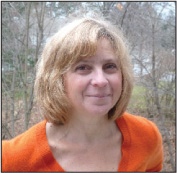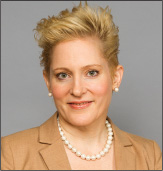ABOUT THE AUTHORS

Mona Domosh is professor of geography at Dartmouth College. She earned her PhD at Clark University. Her research has examined the links between gender ideologies and the cultural formation of large American cities in the nineteenth century, particularly with regard to such critical but vexing distinctions as consumption/production, public/private, masculine/feminine. She is currently engaged in research that takes the ideological association of women, femininity, and space in a more postcolonial direction by asking what roles nineteenth-century ideas of femininity, masculinity, consumption, and “whiteness” played in the crucial shift from American nation-building to empirebuilding. Domosh is the author of American Commodities in an Age of Empire (2006) and Invented Cities: The Creation of Landscape in 19th-Century New York and Boston (1996); the coauthor, with Joni Seager, of Putting Women in Place: Feminist Geographers Make Sense of the World (2001); and the coeditor of the Handbook of Cultural Geography (2002). At present, she is the president of the Association of American Geographers.

Roderick P. Neumann is professor of geography and chair of the Department of Global and Sociocultural Studies in the School of International and Public Affairs at Florida International University. He earned his PhD at the University of California, Berkeley. He studies the complex interactions of culture and nature through a specific focus on protected areas such as national parks. In his research, he combines the analytical tools of cultural and political ecology with landscape studies. He has pursued these investigations through historical and ethnographic research mostly in East Africa, with comparative work in North America and England. He has published in many leading geography journals including the Annals of the Association of American Geographers and Progress in Human Geography. His recent research explores interwoven narratives of nature, landscape, and racial and national identity in the European Union and the American West. His scholarly books include Imposing Wilderness: Struggles over Livelihoods and Nature Preservation in Africa (1998); Making Political Ecology (2005); and The Commercialization of Non-Timber Forest Products (2000), coauthored with Eric Hirsch.

Patricia L. Price is professor of geography at Florida International University. She earned her PhD at the University of Washington. Her field research interests encompass critical geographies of race and ethnicity and Latinos/as in the United States. She is currently researching Cuban exile landscapes in Miami and how nostalgia shapes and connects places. She has authored many journal articles and three books: Dry Place (Minnesota, 2004), The Cultural Geography Reader (Routledge, 2008), and The Human Mosaic, 12th edition (W. H. Freeman, 2012). Landscape, place, and belonging are the longstanding themes in Price’s research, which has been funded by the National Science Foundation and the National Endowment for Humanities. The American Council on Education selected Price as a Fellow from 2013 to 2014. Her fellowship-year project focused on diversity in higher education.